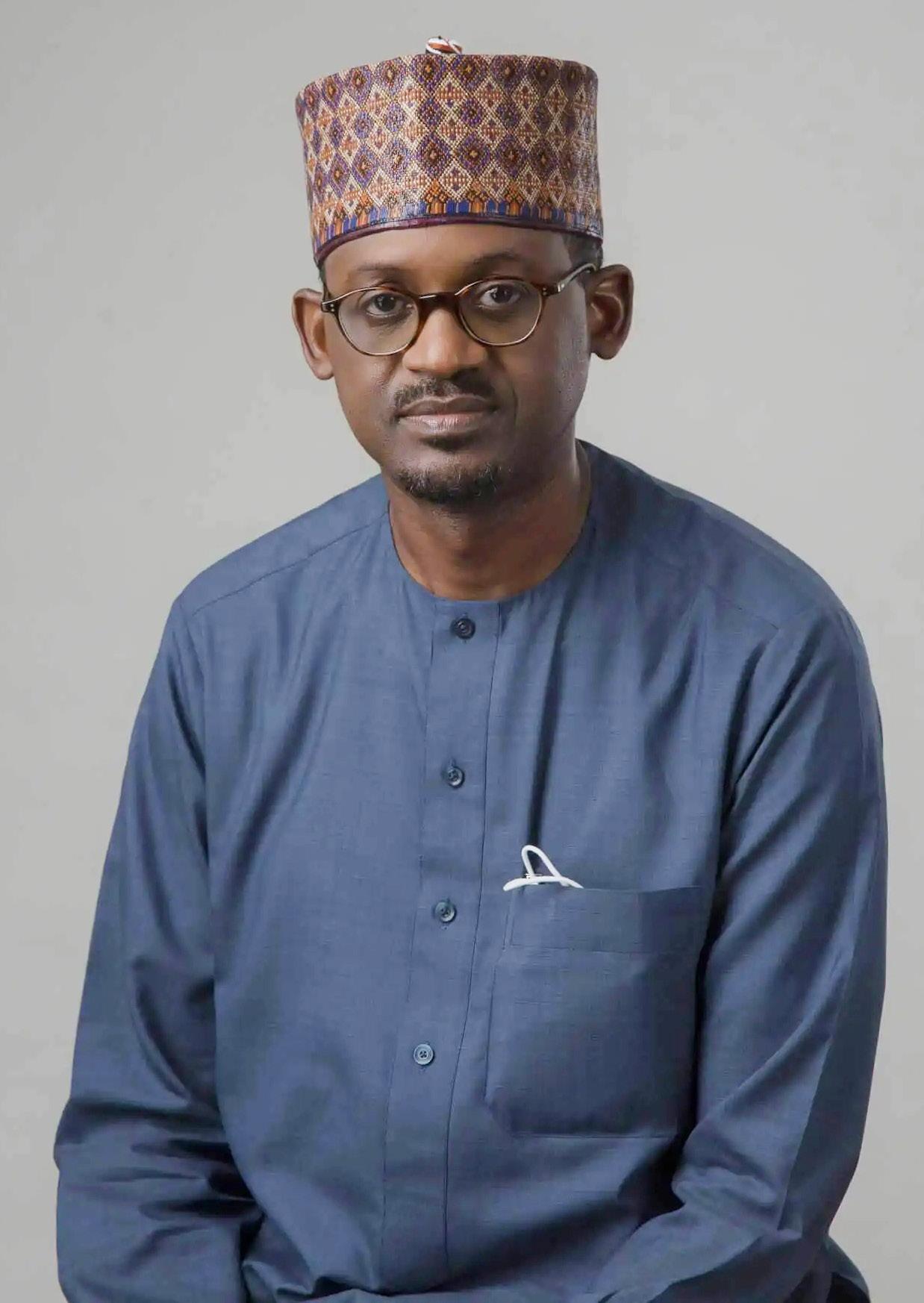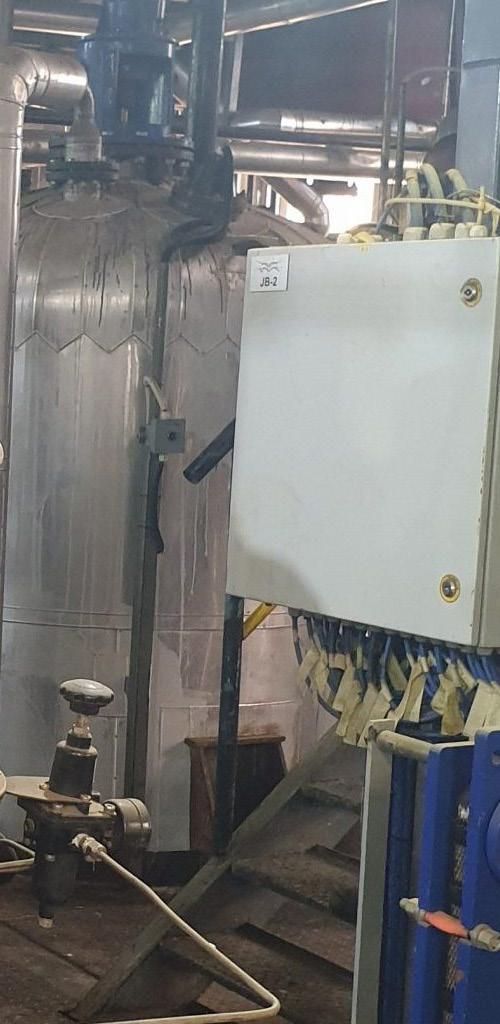THE INVESTMENT COMPANY CREATING INCLUSION IN NIGERIA AND BEYOND

TGI GROUP




“When it comes to business, we can be considered a Swiss Army knife,” said Farouk Gumel, Group Executive Director and Executive Vice Chairman (Africa) at TGI Group, “we do a bit of everything very well”.

WRITTEN BY:
LAURA WATLINGStarting with one business in Nigeria in 1981, TGI Group has grown its business across emerging markets in Africa, Middle East, and Asia by identifying deficits and providing solutions ,leveraging locally available raw materials whilst staying true to its founder’s pioneering and entrepreneurial spirit.

Now, the business employs 23,000 people (both direct and indirect) across more than 20 international subsidiaries in various business verticals. In food and agribusiness, working in close collaboration with around 100,000 farmers, TGI Group has developed a circular eco-system in which it supplies input to farmers, and then purchases the produce to sell to retailers and

major food businesses especially in the hospitality sector.
“The more inputs such as agro-chemicals and fertilisers our farmers buy from us, the more produce they can create, and the more we can buy back,” explained Farouk, “our business is built on a foundation of believing in Nigeria’s potential and investing in it”.
With brands such as Big Bull rice, Terra seasoning cubes and vegetable oils, RENEW fabric starch and Kleansol, it is estimated that 3 million consumers come in contact with TGI Group’s products daily.
Recently, the business’ Terra Seasoning Cube was awarded Outstanding
Brand by Allied Integrated Promotions Management Limited’s National Quality Awards.
The brand received praise for its availability on the market, as well as it’s taste and functionality.
TGI Group’s premier brand is Big Bull Rice, which it uses to engage consumers into the wider TGI Group. In the past, the brand has sponsored Nigerian football team, the Super Eagles, as the official food partner.
Aligning its food products with the health and nutrition sector, it now supports Kebbi State beach soccer team.
“Beach Soccer is increasing in popularity in Nigeria, becoming a bit of a phenomenon, and contrary to popular belief, you don’t need a beach to play, just sand!” explained Farouk, “our products are very healthy, so
it makes sense for us to market ourselves alongside sport”.
TGI Group has been commended by Kebbi Beach Soccer Association for its investments into sport and youth development in the region. The Group also supports the largest national tennis tournament in Northern Nigeria: the Dala Hard Court Tennis Tournament.
Reaching the masses via sport, Farouk was keen to highlight that whilst its products are made to be affordable for the population, they never compromise on quality.
TGI Group is on a mission to drive inclusivity across its geographies, starting internally.
“It’s important to listen to everyone’s ideas and have an open-door policy,” said Farouk, “I hold regular informal


ideas sessions with the younger generation of the team, this is how we encourage innovation. Part of these engagements is what birthed our venture capital fund 22 Invest, where we plan to fund young people’s businesses after assessing their viability”.
To ensure the development of financial inclusion, TGI Group runs Farmer Business Schools across its various crop value chains.
“Many farmers are paid annually at harvest for their crops but haven’t been educated on how to manage a lump sum to last for a year until the next planting season. Our Farmer Business Schools have been established to support farmers in wealth management”, explained Farouk.
To complement TGI’s rural inclusion offerings, in 2022 TGI the Group acquired Union Bank, one of the oldest banks in Nigeria.

In addition to having a strong digital banking strategy, the bank is also pursuing a re-branching strategy that will deliver banking to rural communities where telecommunication service is weak or unavailable. These value propositions will ensure banking services are delivered to the predominantly formal urban economies and the mostly informal rural economies.
“By making our branches efficient and accessible and through collaborations with microfinance banks across the country, we will ensure that banking services reach the most rural communities,” said Farouk.
Further to this, TGI is working with local governments, and other national agencies to improve access to formal identification documents, to support farmers and citizens in rural communities in opening bank accounts. As well as this, it is creating agency banking platforms, comprised of known
members of the communities, who will provide banking services to these community members.
“In a typical season TGI Group spends around 250 billion Naira seasonally to buy harvested produce from farmers and aggregators which traditionally was transacted in cash. With these rural banking developments, around 40% is now being deposited directly into bank accounts, giving farmers and aggregators the opportunity to safely store and save their earnings,” Farouk added.
Moving into its second year of banking operations, the business plans to embark on a growth strategy by expanding its rural inclusion drive to other states across Nigeria.
Once formalised banking is established for its communities, TGI Group will seek to develop digital inclusion.
“Digital inclusion poses some
challenges, particularly where the network coverage isn’t strong enough to support this,” said Farouk, “however, we are determined to support our communities in bridging the gap between the formal and informal processes”.
In addition to banking, TGI Group (alongside partners) has established itself in real estate, soon to complete its second project, a skyscraper in Lagos.
“We’re very excited for the upcoming months. We’ve just completed our second rice mill and second oil mill in Nigeria. We’ve also recently completed the construction of a new dairy factory in the UAE,” shared Farouk.
As well as this, TGI Group is in the process of expanding its fishing fleet, fertiliser and agrochemicals factory and seasoning cube production.


“Whilst we are seeing expansion businesswide, we do so with the intention to impact inclusivity and bring value to our stakeholders,” he continued.
Farouk even highlights inclusivity through his leadership style, which he has developed throughout his career.
“I believe in continuously engaging with my colleagues, ensuring everything is done in a collective manner with everyone’s ideas being considered. The best skill I’ve learnt through my career is to always listen and be the last to speak,” shared Farouk.
During his conversation with Business Enquirer, Farouk was keen to highlight the realities of the Africa Continental Free Trade Agreement (AfCFTA).
The agreement, which was brokered by the African Union in 2018, aims to reduce tariffs among members and covers policy and regulations.

The AfCFTA is an ambitious trade pact to form the world’s largest free trade area by creating a single market for goods and services of almost 1.3 billion people across Africa and deepening the economic integration of Africa.
“Policy makers must consider the current informal nature of the African economy, and support measures to formalise it. Whilst the AfCFTA will have its benefits for the continent, policy makers must keep in mind the existing, practical realities, and then find a balance that will bring together the formal manufacturing sectors with the informal segments of the manufacturing value chain. Both upstream in raw material production and downstream in the retail and distribution sectors,” said Farouk.
www.clicktgi.net

